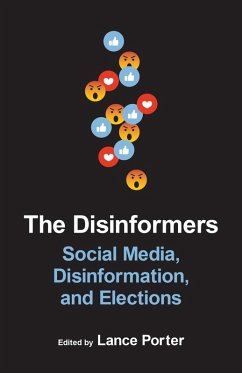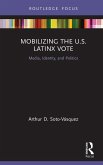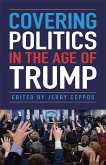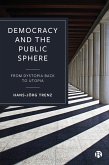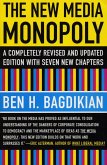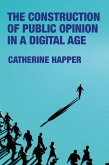The Disinformers uncovers the people and the organizations behind the disinformation campaigns that began on social media with the 2016 U.S. presidential election and reached a violent crescendo with the storming of the U.S. Capitol on January 6, 2021. Edited by social media researcher Lance Porter, this vital collection of interdisciplinary scholarship analyzes how foreign interference destabilized political conversations, stoked racial tensions, and spread disinformation across social media platforms to produce increasing friction among voters.
With a new presidential election cycle in motion, members of the voting public continue questioning both the security of the nation's election systems and the validity of its media networks. The 2016 election thrust the vulnerability of voting technology to the forefront of conversations in the United States and sparked discussions about the use of social media to distribute divisive and false information. While Donald Trump's claims of fraud in the 2016 and 2020 elections were verifiably false, disinformation undoubtedly roiled the nation's media systems and spurred on the insurrection of January 6.
Presenting seven essays of original research, The Disinformers focuses on the turning point of 2016 and how disinformation campaigns continued in the following years. The contributors examine organizations such as Russia's Internet Research Agency and its connections with a conservative network across social media, including Facebook and Twitter, that disseminated incendiary content. Essays from political scientists, media scholars, computer scientists, and cybersecurity experts reveal the ways in which disinformation permeates social media, the platform policies and chronic inaction that enable disinformation to circulate, and the effects of disinformation on young people as well as on historically repressed groups. At a critical time in the U.S. political cycle, The Disinformers provides in-depth analysis of issues essential to understanding the role disinformation can play in elections across the world.
With a new presidential election cycle in motion, members of the voting public continue questioning both the security of the nation's election systems and the validity of its media networks. The 2016 election thrust the vulnerability of voting technology to the forefront of conversations in the United States and sparked discussions about the use of social media to distribute divisive and false information. While Donald Trump's claims of fraud in the 2016 and 2020 elections were verifiably false, disinformation undoubtedly roiled the nation's media systems and spurred on the insurrection of January 6.
Presenting seven essays of original research, The Disinformers focuses on the turning point of 2016 and how disinformation campaigns continued in the following years. The contributors examine organizations such as Russia's Internet Research Agency and its connections with a conservative network across social media, including Facebook and Twitter, that disseminated incendiary content. Essays from political scientists, media scholars, computer scientists, and cybersecurity experts reveal the ways in which disinformation permeates social media, the platform policies and chronic inaction that enable disinformation to circulate, and the effects of disinformation on young people as well as on historically repressed groups. At a critical time in the U.S. political cycle, The Disinformers provides in-depth analysis of issues essential to understanding the role disinformation can play in elections across the world.
Dieser Download kann aus rechtlichen Gründen nur mit Rechnungsadresse in A, D ausgeliefert werden.

